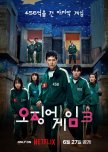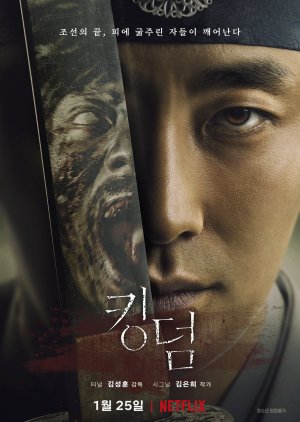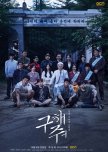


Both are zombie dramas set in ancient eras, with [Kingdom] set in Korea's Joseon era. The female lead of [I, Kill] is similar to the one in the Korean drama, as both work as assistants to a doctor in a remote village. [Kingdom] focuses more on the male lead, the Crown Prince, while the Japanese drama's main female lead is a former ninja.


Episodic saga from the first half of the 20th century follows Hero Hua from an ill-omened June day in his youth to a showdown 17 years later with a disaffected member of his martial-arts school, a Japanese named Invincible. Tensions between Chinese and Japanese, plus U.S. racism, mark the tale. Hero marries Jade, leaves her in China when he goes to America as an indentured servant, rebels against cruel labor conditions, and is joined by her in New York City where she has twins. Jump ahead 16 years: their son Sword comes to New York looking for his father. There, Sword hears many stories of his father, which we see in flashbacks, and the stage is set for the battle with Invincible.


Similarities:
- Horror Dramas
- Historical Dramas
- Set in Josean Dynasty
- Inolves the royal family
- South Korean Dramas
- The king is a huge part of both series
Differences:
- Kingdom is about Zombies
- The Haunted Palace is more about the supernatural
- Kingdom isn't primarily romance based, while The Haunted Palace is
- Kingdom has two seasons, while the The Haunted Palace only has one
- The Haunted Palace has less gore in it, compared to Kingdom
- The Haunted Palace is a comedy Drama, while Kingdom isn't
- Horror Dramas
- Historical Dramas
- Set in Josean Dynasty
- Inolves the royal family
- South Korean Dramas
- The king is a huge part of both series
Differences:
- Kingdom is about Zombies
- The Haunted Palace is more about the supernatural
- Kingdom isn't primarily romance based, while The Haunted Palace is
- Kingdom has two seasons, while the The Haunted Palace only has one
- The Haunted Palace has less gore in it, compared to Kingdom
- The Haunted Palace is a comedy Drama, while Kingdom isn't


This is a short film that revolves around Kris Wu's single, Eternal Love, which tells the story of three characters: The general who fell in love with the princess who already has a predetermined marriage with the king of the barbarians. Because the general and the barbarian king caused the death of the princess, the heavens decided to curse the two of them and this curse can only be lifted by winning back the princess' love in the modern era.


Both are intense political action thrillers that take place in the context of an internal conflict. Both focus on a core group of characters, some of whom have complicated relationships with one another. There is a bromance that becomes complicated, and the characters struggle to survive. The fight scenes are intense and frequent, and the setting is gritty and depicts the lower classes as well. Both are dark stories in which the characters are constantly being challenged, both physically and morally, and the main character is forced to become a leader of a ragtag bunch of misfits.


All the gods will be leaving before the last rain of doomsday. However, an ordinary human girl unexpectedly puts a dent in their plans to retreat thus causing the world to move towards the unknown. Based on the animistic mythology of the Amis tribe, the gods are no longer willing to bless the land that is plagued with environmental issues. One by one, the gods depart the world they once loved. A human girl discovers that the opportunity to reverse her destiny lies within herself and her guardian. Before the final day of judgment, a love story between human and god unfolds.


Both dramas offer intense plots, high-stakes survival scenarios, and deep psychological conflicts, much like Squid Game. Whether it’s battling against societal collapse, supernatural threats, or dystopian struggles, each series delivers gripping suspense, moral dilemmas, and unexpected twists that keep viewers on edge. If you enjoyed the tension, unpredictability, and raw human emotions of Squid Game, these shows will offer a similarly thrilling experience.




































